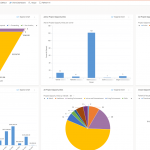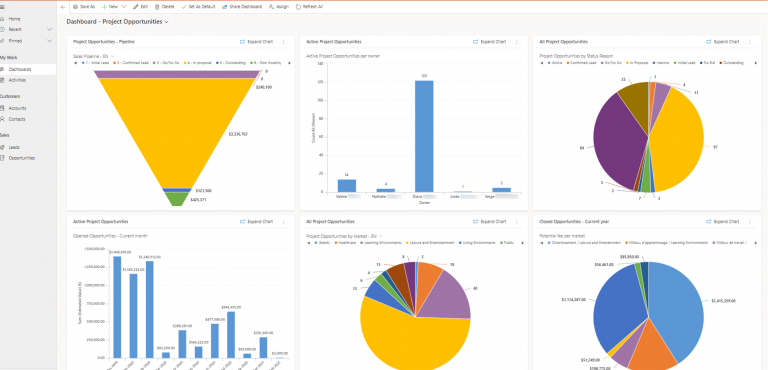A college can use a CRM to collect and store a wide range of data about students, faculty, staff, and alumni. This data can be used to improve communication, collaboration, and learning. Some of the data that a college CRM might collect include:
Student data: This can include contact information, academic records, financial aid information, and extracurricular activities.
Faculty data: This can include contact information, teaching experience, research interests, and publications.
Staff data: This can include contact information, job title, department, and years of service.
Alumni data: This can include contact information, graduation year, and employer.
A college CRM portal can use this data to track student progress, identify at-risk students, and provide personalized support. It can also connect faculty and staff with students and promote collaboration on research and teaching projects. Additionally, a college CRM portal can track alumni giving and stay in touch with former students.
Here are some specific examples of how a college CRM portal can be used:
Identifying at-risk students: You can identify at-risk students by tracking grades, attendance, and extracurricular activities. This information can be used to intervene early and prevent students from dropping out.
Providing personalized support: It is easier to provide personalized support to students by tracking their academic progress, financial aid information, and extracurricular activities. This information can be used to connect students with the resources they need to succeed.
Connecting faculty and staff: With it, it is easy to connect faculty and staff by tracking their contact information, teaching experience, research interests, and publications. This information can be used to promote collaboration on research and teaching projects.
Staying in touch with alumni: A college CRM can be used to stay in touch with alumni by sending them updates on the college, invitations to events, and requests for donations. This information can build relationships with alumni and encourage them to stay involved with the college.
A college CRM portal can be a valuable tool for improving communication, collaboration, and learning. Collecting and storing data about students, faculty, staff, and alumni can help make the college experience more efficient, effective, and engaging.
A portal solution in the education industry is a web-based platform that provides users access to various educational resources and services. Portal solutions can be used by schools, universities, and other educational institutions to improve communication, collaboration, and learning.
Some of the uses of a portal solution in the education industry include:
Communication: Portal solutions can be used to communicate with students, parents, and staff. For example, schools can use a portal to send announcements, reminders, and updates. Parents can use a portal to stay informed about their child’s progress and to communicate with teachers. And staff can use a portal to collaborate on projects and to share resources.
Collaboration: It facilitates collaboration between students, teachers, and staff. For example, students can use a portal to work on group projects together. Teachers can use a portal to share lesson plans and resources. And staff can use a portal to brainstorm ideas and solve problems.
Learning: Students can be given access to a variety of educational resources, such as textbooks, articles, videos, and simulations. Portal solutions can also be used to deliver online courses and to provide students with feedback on their work.
Overall, it can help make education more efficient, effective, and engaging.
Here are some specific examples of how portal solutions are being used in the education industry:
The University of California, Berkeley uses a portal solution to give students access to their academic records, financial aid information, and library resources.
The New York City Department of Education uses a portal solution to communicate with parents about their children’s progress and provide them with parenting and education resources.
The Khan Academy uses a portal solution to deliver online courses to students of all ages.
There are many benefits to giving faculty members, and students access to a college CRM portal. Some of these benefits include:
Improved communication: A CRM portal can help to improve communication between faculty members, students, and staff. For example, it can be used to send out announcements, reminders, and updates. It can also be used to create discussion boards and forums where students and faculty can interact with each other.
Enhanced collaboration: A CRM portal can help to enhance collaboration between faculty members, students, and staff. For example, you can share files, documents, and presentations with it. It can also be used to create projects and tasks that multiple people can work on.
Increased efficiency: it can help to increase efficiency by automating tasks and processes. For example, a CRM can be used to automate sending out transcripts, letters of recommendation, and other documents.
The ideal CRM portal is a mix of the right features, its ease of use, and the adoption rate in your college. Our Dynamics 365 portal is not only feature rich, but also simple to setup to become a part of your workflow. Once setup, it can handle the logistics of your organization, and eventually, give you insights that you can use to enhance your operations, management, student performance, and so on.









